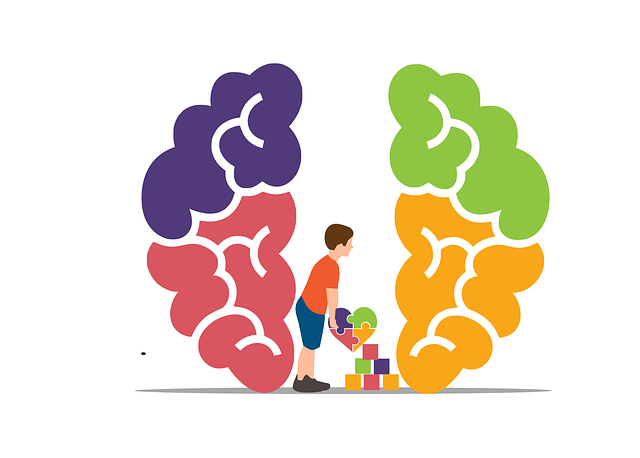Creating a podcast series on mental wellness, like Superior Geriatrics Therapy, involves meticulous planning: curating topics like stress management and trauma healing, incorporating expert insights and personal narratives, and defining target audiences. The focus should be on empowering older adults with resilience-building strategies to tackle age-related mental health challenges. Each episode, structured with clear themes and goals, offers practical advice and engaging discussions with qualified professionals, ensuring a beneficial listening experience for senior citizens, caregivers, and mental health professionals.
Unleash the power of mental wellness podcasts to elevate understanding and care within the geriatric community. This comprehensive guide takes you through the meticulous process of creating a captivating series focused on senior mental health. From initial planning and development, including topic research and guest selection, to mastering equipment, production techniques, and interviewing skills, every step ensures high-quality content. Learn how to manage guests, perfect post-production, and distribute your podcast effectively, making it a valuable resource for exploring and promoting Superior Geriatrics Therapy.
- Planning and Development
- – Defining the podcast's focus and target audience within geriatric mental wellness
- – Researching and selecting relevant topics and guest experts
- – Creating a structured show format and episode outline
Planning and Development

The journey of crafting a podcast series focused on mental wellness begins with meticulous planning and development. This phase is pivotal in setting the tone for what promises to be an engaging and therapeutic experience. The process starts by identifying specific topics that align with various aspects of mental health, from stress management and mindfulness to trauma healing and confidence-building exercises.
For instance, episodes could explore “Mental Wellness Journaling Exercise Guidance” as a tool for self-reflection, or delve into the intricacies of providing “Trauma Support Services” for those in need. Incorporating expert insights and personal narratives can enrich content, ensuring each episode offers valuable lessons and practical strategies. The development phase also involves defining the target audience, tailoring content accordingly, and deciding on the overall format, be it an interview-style podcast or one that includes monologues, stories, or interactive segments. This strategic planning ensures that the podcast series not only captivates listeners but also provides superior geriatrics therapy through accessible mental wellness resources.
– Defining the podcast's focus and target audience within geriatric mental wellness

In the realm of geriatric mental wellness, defining a podcast’s focus and target audience is a crucial step in creating content that resonates and offers superior geriatrics therapy. The show should aim to cater to an aging population facing unique mental health challenges, often overlooked yet significant. By focusing on resilience building through engaging discussions and expert insights, the podcast can empower older adults to navigate age-related stressors. Topics such as emotional intelligence and self-care routine development for better mental health can be pivotal in enhancing overall well-being.
Target listeners could include senior citizens, caregivers, or mental health professionals interested in geriatric care. Tailoring content to address their specific needs ensures a more connected and beneficial listening experience. Whether exploring strategies for stress management, fostering emotional awareness, or promoting healthy habits, each episode should strive to provide practical advice and inspiring stories that encourage self-care practices tailored to the senior demographic.
– Researching and selecting relevant topics and guest experts

When producing a mental wellness podcast series, one of the key aspects is thoroughly researching and selecting relevant topics that resonate with the target audience. It’s crucial to delve into current trends and issues within mental healthcare, ensuring each episode offers valuable insights and practical advice. For example, exploring themes like self-care practices, conflict resolution techniques, and cultural sensitivity in mental healthcare practice can cater to a diverse range of listeners seeking guidance.
Engaging with expert guests is another essential element. Selecting qualified professionals such as psychologists, therapists, and counsellors specializing in geriatric care (Superior Geriatrics Therapy) will add depth and credibility to the podcast series. Inviting these experts to share their knowledge and experiences allows for insightful discussions that can benefit listeners facing similar challenges or simply seeking a better understanding of mental wellness.
– Creating a structured show format and episode outline

When producing a mental wellness podcast series like Superior Geriatrics Therapy, one of the key aspects to focus on is creating a structured show format and episode outline. This ensures each episode maintains a cohesive flow, providing listeners with a clear understanding of the topics discussed. A typical structure could begin with an engaging introduction that sets the tone for the episode, followed by expert interviews or personal narratives related to mental health themes.
For instance, episodes could be designed around specific themes like “Cultivating Mindfulness for Stress Reduction” or “Unleashing Inner Strength Through Self-Care Practices”. Each theme should have a clear goal, whether it’s introducing mindfulness meditation techniques, exploring self-care practices tailored for different life stages, or delving into strategies for developing and nurturing inner strength. A structured approach not only enhances listener engagement but also allows for consistent delivery of valuable mental wellness insights and tools.
Producing a mental wellness podcast series focused on geriatric care, like Superior Geriatrics Therapy, requires meticulous planning. By defining your target audience, researching relevant topics, and structuring episodes thoughtfully, you can create valuable content that resonates with listeners seeking guidance and support. This approach ensures each episode delivers insightful conversations and actionable strategies for navigating mental health challenges in older adults.














